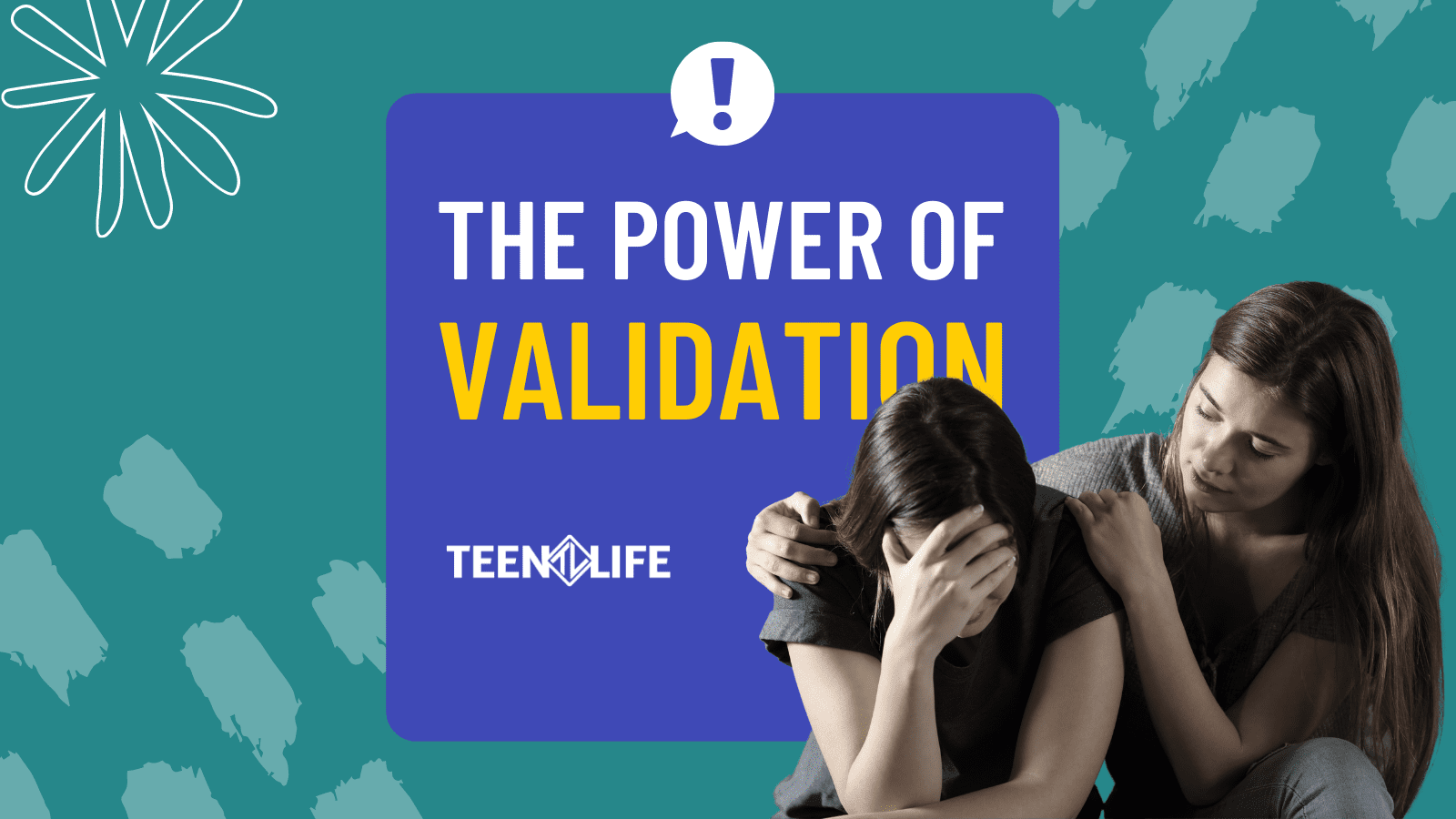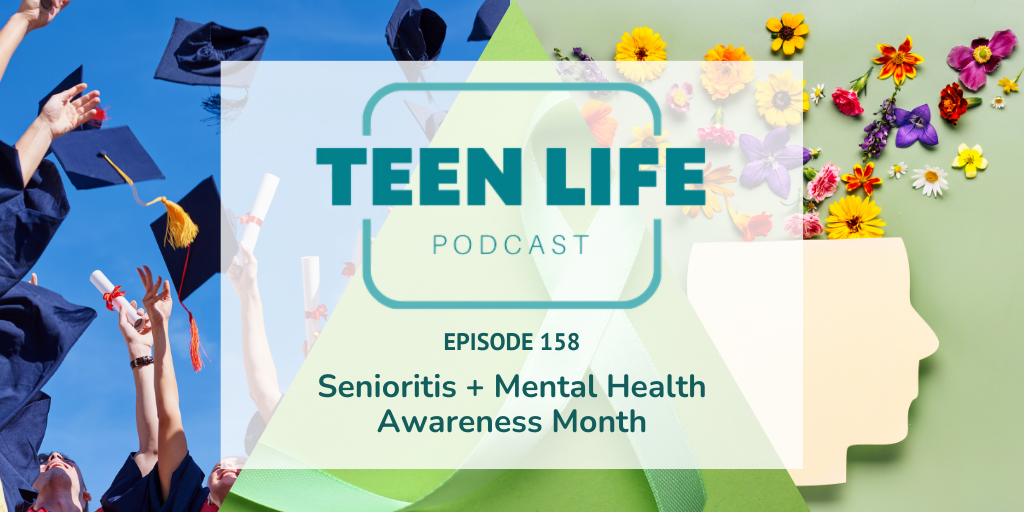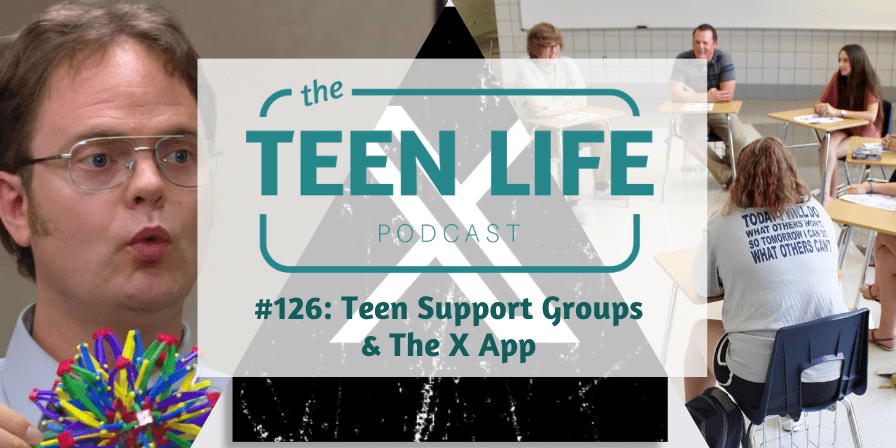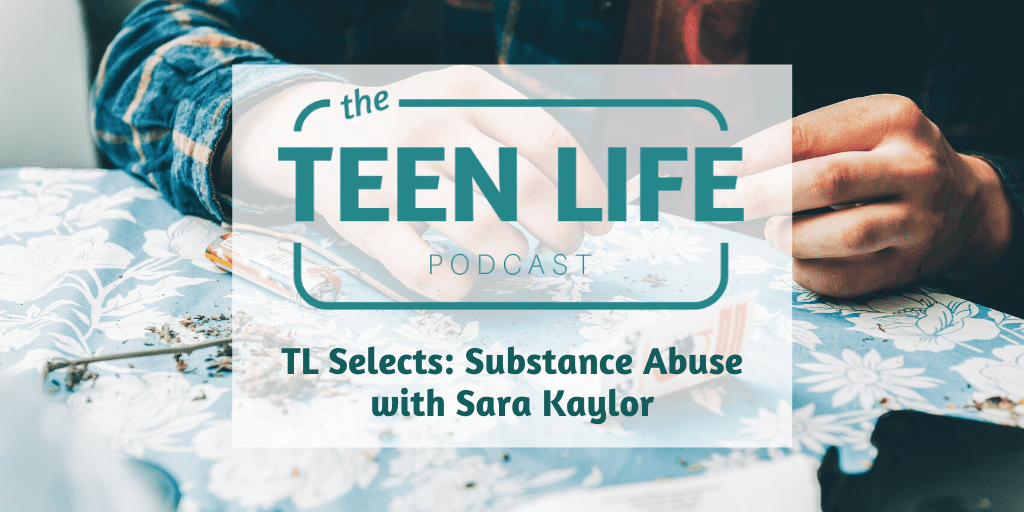
by Karlie Duke | Apr 14, 2016 | Parenting, Support Groups
The more I work with teenagers, the more evident is that they are their own worst enemy and biggest critic.
Check out this story from one of our facilitators, Josh Hardcastle, about a conversation that happened in his support group with teenage guys:
A couple of weeks ago, we were talking about the negative influences and negative voices in our lives. Some of the guys in the group spoke up and were talking about how when other people put them down, they believe it. They believe that they…
Are Lazy.
Are Stupid.
Won’t Succeed.
Are Slow.
Are Punks.
Can’t get anything right.
So then I threw out the question, “What if you didn’t believe them?”
I had remembered a line from a book I read that said something like, “The names that we embrace are the names that we become.” I shared with them some of the struggles with the names that I had been called in High School by a coach. After hearing it so many times, I began to believe that I was that name.
There was something about this whole conversation and group time that really clicked with them. I could actually see hope and strength starting to resonate with a few of them. They were sitting up straight and absolutely silent. Not because they didn’t know what to say, but because it looked like they were thinking about not believing they were these names that they had been called for so long.
Towards the end of the group time, one of the guys asked, “So does this work with me too? Because I put myself down more than anybody else.”
Man that broke my heart! But we were able to have a conversation as a group about what that looked like and how we can avoid embracing the negative names and voices we call ourselves. I closed out the group by asking, “What do you guys notice about everyone’s pages and what they heard from the important voices in their lives?” A few of them gave me the answers that most everybody had written down their family or best friends, but one of my quiet kids raised his hand and said, “Everyone has more than two important, positive voices who speak into their lives.”
I took it one step further and asked, “So what does that mean?” Another guy jumped in and said, “That we should be listening and focusing on the positive voices and ignoring the negative ones.”
Boom. Nailed it.
Teenagers are surrounded by all kinds of negative and critical voices, but these voices do not just come from outsiders. Sometimes, the worst thoughts are coming from inside their own heads.
So what can we do? How can we help encourage teenagers to think positively and be a better judge of their self-worth? I have a few suggestions for what we can do as parents, teachers, mentors and friends:
1. Ask questions that will allow them to brag.
Instead of bringing up that “B” on a test, or the fact that they were late getting home (…again), ask one of these questions: “What is one thing that you did really well today?” or “How did you help someone today?”
By asking these question, you are prompting their own brain to focus on the positive aspects of the day. You are telling them that they are capable of great things and you want to hear about the things that they are going well.
Let’s help train teens to engage in beneficial bragging! Bragging that fosters a good sense of self-worth and positive self-esteem.
2. Point out the little things.
Did your teen wash the dishes without being asked? Say, “THANK YOU!”
Resist the urge to say something like, “What’s wrong with you?! You never do the dishes without asking!” or “Finally! Now you’re doing the dishes every night for the rest of your life!”
I know this might be a silly example, but by encouraging the little things they do without adding a backhanded dig or sarcastic comment, they will also pay attention to the important role they can play!
Tell them when you are proud. Hang up that last report card on the fridge. Brag about the way they love on their siblings. Teenagers are necessary, helpful, hardworking and FUN – don’t forget that!
3. Encourage realistic goal-setting.
When I am hard on myself or engage in negative self-talk, it tends to be when I am disappointed in myself or feel like I haven’t reached the goal I set for myself. After a busy week, I am upset that the house is a little messy and that I didn’t cook every meal at home. I beat myself up when I miss one tiny detail on a big project, or find a typo in a blog post.
Goals are a great thing to have, but we should be realistic and not sweat over the little things! Encourage teenagers to set small goals. When they reach that goal, help them celebrate and especially if they don’t matter – forget about the tiny things that might not be perfect.
Perfection isn’t a realistic goal. But here are a few realistic goal examples for teenagers:
- Be on time to school in the morning – who cares if you forgot to brush your hair or ate a pop tart instead of a well-rounded, healthy breakfast?!
- Help with one thing around the house – start small by making the bed, or doing the dishes after dinner!
- Improve on the next test – don’t get upset if the next grade isn’t a perfect 100, but strive to do better than that last test!
Once you help them come up with, write down and spend time on their goals, don’t forget to celebrate when a goal is reached!
What do you think of these ideas? How else can we encourage teenagers to engage in positive self-talk?
Karlie Duke was in one of Teen Lifeline’s original support groups and now is our Communications Director. She is passionate about encouraging students to live better stories.

by Karlie Duke | Mar 10, 2016 | Dating, Entertainment, Parenting, Pornography
How do we combat the false image of romance portrayed in the media we consume?
Before you freak out about the title of this blog, give me a chance to explain.
I am a hopeless romantic. My favorite movie is still Disney’s Beauty and the Beast. I love the stories where the princess falls in love and lives happily ever after. When it comes to books, I read anything and everything with a love story – Nicholas Sparks, The Twilight Saga, The Selection Series, anything by Karen Kingsbury. I have iron-clad opinions on whether Katniss should end up with Gale or Peeta. I cried my way through The Notebook and even read the less-popular sequel.
I admit that I am a faithful watcher of The Bachelor and The Bachelorette. I can tell you the names of the couples that are still together, watched all their TV weddings and even follow a few of my favorites on social media. I love the romantic dates, seeing who will get a rose each week, and watching the guys pick out the perfect engagement ring. I live for that final episode when the man gets down on one knee, and you see their love story come together for the perfect finale. Have I mentioned that I love all things romance?
But “porn,” really?? “Porn” can be a taboo word for our culture. Yes, we know it is out there, but we are not always willing to talk about it. Why would we want to bring up such an awkward topic with our teenagers? They don’t struggle with pornography addiction…and especially not my daughter!
Think again. According to research done by Covenant Eyes, 90% of boys and 60% of girls are exposed to pornography before the age of 18. That is your teenager. They are growing up in a culture where they can access pornography 24/7 on their television, laptop, or on the tiny phone that is attached to their hand. Pornography is a problem for adolescents and an issue that we do not ignore, but this blog is not about that type of pornography – naked pictures, sexting, magazines and x-rated movies (we will save that for another day).
For today, I want to speak mainly to the girls out there. Whether or not you connect with my story (or know someone else that does), I believe that our culture encourages girls and women to fall in love with these fictional men and their perfect relationships where arguments and morning breath do not exist.
In their book, Dateable: Are You? Are They?, Justin Lookadoo and Hayley DiMarco write:
“This is the #1 thing that distorts a girl’s view of reality, men and relationships. Maybe you haven’t heard it called female porn. Maybe you know it by the softer, more acceptable terms of “chick flicks” and romance novels…Your porn isn’t sexual, it’s romantic. But it gives you a warped view of men…if you have a man in your life, you begin to look at him in light of Mr. Perfect, and he can’t compare. He’ll never be as beautiful or romantic as the movie star with all the makeup and good lighting…It creates men who rescue you from out-of control buses and shower you with rooms full of roses. They fly you off to Paris for the weekend and save you from the evil villain bent on destroying the world. These men don’t exist…you are imposing an impossible set of demands on your guy.”
I am not saying that we need to ban romance movies or books – what would I do in my free time?
But I do have a few suggestions for how we can combat this culture where girls are looking for a Prince Charming who will never come, and where guys feel like they can never live up to the romantic standard set by Hollywood.
1. Discuss realistic expectations.
When you talk to teenagers about the latest romantic comedy, make sure that they know that those are unrealistic expectations. While it is not unrealistic to expect a man to open your car door, hold your hand or treat you like you deserve to be treated, men (just like women) are imperfect. They aren’t going to bring home flowers every day. Their lines aren’t written by a producer who makes a living by making you cry. They probably aren’t going to stand outside of your window with a boombox to win your affection. They sometimes smell, they don’t always enjoy everything you do and they probably don’t have the bank account to support your love of diamonds or to fly you across the world for an exotic date.
It is okay to give a reality check. Encourage them to write down what they are actually looking for in their “perfect mate.” Focus on qualities and characteristics, not necessarily on their physical appearance or ability to give great gifts.
2. Set Realistic Boundaries
You know your teenager best. If you see them falling into this romantic porn trap, set a few boundaries. Maybe they need to take a break from Nicholas Sparks. Perhaps you set a boundary where they have to sit down and have a discussion with you after they watch or read anything in that romance genre. Encourage them to find new, age-appropriate TV shows, books, or movies to invest their time in – try watching The Voice or Fixer Upper. Protect their hearts by limiting their exposure to romantically-saturated forms of entertainment. Maybe it is time to start a new hobby, like knitting!
3. Model Realistic Relationships
Real relationships exist, so don’t hide the realities of marriage from your teenager. You are doing a disservice to your children if you pretend that your marriage is as perfect as the ones we see on-screen. It’s okay for them to see you argue every now and then. Start bragging about the little things that your spouse does. Show that romance can come in the form of a well-timed kiss on the cheek, coming home to clean dishes, or a text asking how your day was. Surround your teenagers with healthy relationships, in and out of the home, where they can see how marriages work on a day-to-day basis.
What do you think of this idea of female, or romantic, porn? Do you have any other ideas for how we can protect and encourage teenagers?

by Karlie Duke | Feb 18, 2016 | Parenting, Resources
How to harness the power of your words when speaking of teens.
Have you ever had that one person that you just really don’t like? There isn’t always good reason, but when their name is brought up, you inwardly roll your eyes and try your best to hide those negative impulses? That’s not just me…right?
Recently, I realized that I had developed an incredibly strong opinion about a person without even knowing them personally – let’s call him Max. Through other people’s opinions, I began to see Max as selfish, moody and disrespectful. What’s even worse is that I didn’t realize my bias until someone else’s opinion began to change my mind!
Once again, without any personal interaction, I created an opinion in my head based on how someone talked about Max. However, this new influencer had the opposite effect. Where I used to roll my eyes when his name was brought up, suddenly, I found myself defending his decisions and giving him the benefit of the doubt when he made mistakes. After spending time with one of Max’s best friends, I stopped treating Max like he had personally wronged me (which he hadn’t), I began to see him as a likable, funny person who needed a little grace, just like the rest of us.
All because of one opinion.
You might be asking – what did they say? How can a few words change your opinion so quickly? And that’s just it – it really didn’t take much. His friend didn’t bribe me or make up stories about his heroic efforts on the weekends, they simply spoke kindly about Max. In every word, every description and even through their tone, I could tell that they genuinely believed the best about Max. There was a reason that they were friends, and it made me want to be his friend, too!
Michael Hyatt just wrote a blog about the importance of affirming your spouse, and after my experience with Max, I am a firm believer in the power of your words and their ability to shape someone’s opinion.
If it is important to lift up, encourage and affirm your spouse, it should be just as important to do the same for your kids (especially your teenagers)!
Here are a few reasons why it is crucial to speak positively about teens:
Your words will shape the opinions of others.
As parents, teachers, youth ministers, coaches and mentors, we need to check what words and stories are coming out of our mouths. Especially when you are talking to people who do not personally know that teenager, there is no excuse for gossiping and spreading negative opinions about a student. When all you do is vent to friends or other parents, you are only giving them a glimpse into the most negative aspects of that teen.
How are they supposed to overcome that difficult teacher or the task of making good friends when everyone already has negative, preconceived notions about who they are and their priorities. Give them a chance to make friends or enemies based on their own interactions, instead of the thoughtless words of an angry, frustrated adult. Choose to say kind and positive things more often than telling negative stories.
Give your friends, their teachers, and other adults a reason to like your teenager.
Your words will shape your opinion.
When you say positive things about that teenager, you will start to notice more positive things to say. Instead of jumping to the worst possible conclusion, tell others how much they are trying. Tell that story about how sweet they were when their little sister was crying (you don’t have to mention that they caused the crying in the first place). Focus on the things they are great at – whether that is school, band, being a good teammate, or helping around the house.
If you get in the habit of bragging on your kids, students and players, you might find that you have more reasons to brag on them than you originally thought. Just like your words can change the opinions of others, they can also influence your own patience and treatment of teens.
Give yourself a reason to like that teenager.
Your words will shape their opinion.
I will never forget the times that my parents bragged about me to their friends, or the time I overheard my youth minster telling someone he wanted his daughter to grow up and be like me. I can remember thinking, “If they think that of me, I need to keep going and prove them right!”
You know that warm, fuzzy feeling when you know someone is proud of you? Can you imagine what teenagers would act like if they got that feeling often – weekly, even daily?
Tell that teenager that you are proud of them. Write it in a note. Say it out loud. Tell everyone you know how great they are. Use your words to empower and encourage your teenager to act, think and live better.
Give teenagers a reason to like themselves.
Take this next week and consciously look for positive things to say about the teenagers in your life. If a negative thought or word comes up, immediately think of two positive things to replace it with.
Let us know how this experiment goes and if it changed the way you or others fell about teens. Help combat the negativity that is too often involved with these teenage years.
More Resources You Might Like

by Karlie Duke | Aug 27, 2015 | Blog, Parenting, School
The teen years are a critical time to prepare for the future. So how can we help?
I love this time of year, the time when crayons are on sale and my newsfeed is filled with pictures of forced-smiling students in backpacks. Every year when August rolls around, I like to drag out my old pictures and reflect on all of my FDOS (First Days of School).
I think back to when I was in Kindergarten and was so excited to be in “big kid school” with my new backpack and friends, but I promptly fell asleep when I got home due to all that excitement.
I will probably never forget my first day of Middle School…the nerves and anxiety of wondering if I would remember my locker combination, who I would sit by at lunch, and if I would survive the mature and much cooler 8th graders. I do not look back on this day with super warm-fuzzys.
I definitely remember my first day of Senior year! This year came with fewer nerves and doubts. By this time, I knew what to expect and where I stood, so this FDOS was full of excitement, anticipation, and hope.
If we are being honest, as many FDOS as I had in elementary, middle, and high school, it is that first day (and week) of college that sticks out the most to me. Just like in kindergarten, I had a new backpack, new friends, and a brand new environment. I was missing home but was both nervous and excited for what the next four years would bring. However, more than anything else, I felt prepared; I knew that all the other “Firsts” were leading up to this big one.
5 ways to help teens prepare for the future…
As the first day of school comes and goes each year, whether you are a teacher, have a baby at home, just walked your kindergartener into their first class, or dropped your college student off in a strange town, your goal is for the students in your life to make it to that “Last First Day.” While supporting kids with the end in mind (hopefully that they will grow up, move on, and become successful adults), there are several things you can do to help them prepare for the future and the hardest part – the leaving.
1. Encourage and equip at every stage.
While we don’t want to force kids to grow up too fast, it is important that we also instill confidence from the time they step into elementary school to their last day of college. Don’t ever ask, “Do you really think you are ready for this?” If they feel prepared and that you are cheering them on at every step, that transition is so much easier!
If you do have questions about decisions or new stages they are entering, try asking things like:
- How are you feeling about ___?
- I can see you’ve been preparing for this! Walk me through your thought process.
- I am so proud of you! Is there anything I can do to help you?
2. Slowly release the reigns.
Kids need boundaries, especially the teenager types! However, they also need to begin to explore and regulate their boundaries before they are completely on their own. The goal is that the first time they are making their own choices and boundaries shouldn’t be when they are on their own, potentially without the guidance of trusted adults.
When they first get their car, make their curfew a little stricter than necessary so you can relax that limit as they approach their senior year. Give more responsibilities, show more trust, and pry less as they get older. Design lessons so that they have to show more responsibility to succeed. This shows that you trust them and allows them to excel (or fail) for the first time in a safe environment, not when are they living in a dorm room 1,000 miles away or starting their first job.
3. Ask about their hopes and dreams.
Ask students about their future and what they hope to accomplish in college, after college, and beyond. By doing this, you are encouraging them to think about their goals and what it will take to get there. I have yet to meet a teenager without a dream for their future, but this future can seem far away for the 6th grader who just wants to be popular or the junior in high school who can’t seem to pass Physics. Give them motivation now and the expectation that, one day, they will have their own plans outside of what their parents, coaches, and teachers have laid out.
4. Affirm and empower them to succeed.
At Teen Life, we believe that every teenager has gifts and strengths. They are capable of succeeding and thriving! You probably believe this too, but have you vocalized it to the teens in your life? As you make choices, design assignments, and set boundaries, communicate the “why” behind it. Tell them what you hope for their future and how you are trying to prepare them.
You can also speak positive affirmations over them like:
- You are good enough
- You are prepared
- It is okay to ask for help
- I believe in you
- I am proud of you
- You are a good person
The greatest way to help teens prepare for the future is to prepare yourself. Take pictures, cry as they drive themselves to school for the first time, and force them to participate in family game nights, but don’t lose sight of the dreams and goals you have for them. Parent with the end in mind, knowing that they will leave and that is good.
For our school people, you know all too well that the students in your classroom will move on every year. That doesn’t make it any easier though – especially when you feel particularly close to a group of students.
Instead of making them feel guilty for leaving you, send them off with the confidence and trust that they will excel because they are prepared.
The greatest work we can do now is to help teens prepare for the future. They are capable, strong, and brave. Don’t let them forget it!
More Resources You Might Like

by Karlie Duke | Jun 18, 2015 | Blog, Drugs & Alcohol, Support Groups
Support groups for teens offer an oppotunity for celebration.
It is no secret that the success of Teen Life comes from the incredible volunteers who give up their time and energy to make support groups for teens possible on school campuses.
One of these facilitators, Josh, worked with a group of students on a high school campus. Included in the group was a girl who had struggled with drug abuse in the past. She was open about this with the group members and was enjoying the skills and tools she was learning, but she especially appreciated the relationships she was building each week through this group.
As she got to know the group even better, she was excited to share with them about her upcoming celebration of being clean of harmful substances for one year. In sharing this, she invited the group to join her at a celebration party.
Josh later shared with us that he did not know if any of the other group members would be able to make it to the celebration. He was hopeful that the students would show up, but he also knew that there would be several factors that could keep them from coming. These students had only known each other for a short amount of time, so for them to remember, make travel arrangements, and prioritize a party centered around not using substances would be a big deal.
Because of the relationship he had built through the group with this girl and motivated by his skepticism that anyone else would show up, Josh decided he should make it a priority to go, uncertain of whether he would be the only non-family member there to help celebrate.
To his surprise and joy, every single member of the group chose to come and support their new friend. Through this Teen Life group, students were bonded through the renewed journey they were all choosing to embark on together.
This is what support groups for teens are about: building relationships.
Support groups offer the opportunity for students to create relationships that renew, build skills and tools that aid in the renewal process, create space that encourages a positive way of renewing life, and celebrate when this renewal is realized so that it is also reinforced.
These and many other students are encouraged in their renewal process on a regular basis. They get to see what it looks like when their peers choose a better life, and at the same time, facilitators like Josh are there to model the kinds of behaviors that cultivate a life of renewal.
What a blessing it is to see life change as these teenagers’ stories are renewed and celebrated.
More Resources You Might Like

















